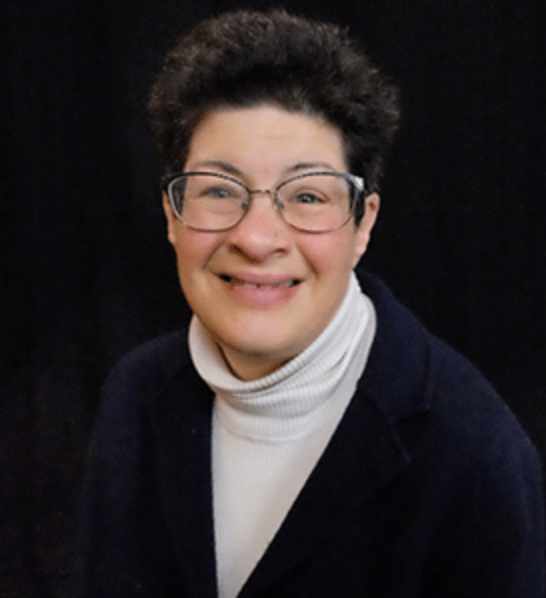Ever since I was little, I have always remembered hearing about voting and how exciting it can be for several reasons:
- To make change in the world – how ever I wish to define that
- To have MY say- I am a person with an intellectual disability and I have thoughts and beliefs that are mine
- To feel hope in the country that I love and that I am a citizen of, that the country is built on values and principles that I hold very dear to my heart
Looking back on these reasons, I want to share the story of the first time I voted. had just turned 18 years-old, and was so excited to drive to the polling place with my dad. But guess what I forgot to do: to figure out who I wanted to vote for! So because I figured that since I always trusted dad, and that he never let me down, that whoever he voted for, was good enough for my vote. So I went in the booth, and checked the box that my dad told me to. Now that I am older, I realize that it is wrong to let someone else tell me how to vote. Now I know that my vote is MY vote.
– Liz Weintraub
In preparation for the upcoming November 3rd elections, the policy team at AUCD has gone on a national, virtual ‘road tour’ to share the power of the disability vote and how to make a voting plan this year. We’ve spoken to voters of all abilities, ages, and backgrounds from around the country who are passionate about participating in our democracy and having their voices heard. In our presentations, we cover the basics of voting: from registration deadlines to ballot accessibility, legal guardianship to the impact of COVID-19, and everything in between.

But what we most hope to achieve is that voters with disabilities leave our presentations with the confidence that they CAN vote and that it is THEIR vote. In this spirit, we share this blogpost as a Plain Language frequently asked questions (FAQ) on voting rights for individuals with disabilities, and what you can do to protect this right and privilege for yourself this election season.
I thought that everyone in the United States who is a citizen and is over the age of 18 years-old can vote, so why are we talking about this?
Unfortunately, not everyone in the United States who is a citizen and is over the age of 18 years-old has the right to vote, and many, many more people in the history of our country count not vote. For example, this year we celebrated the 100th Anniversary of the 19th Amendment to the Constitution, which gave women the right to vote. This means that for more than the first half of our country’s existence, women could not vote! Many other groups of citizens have also had to wait for the right to vote, including Black people, people ages 18-21 years-old, people who speak languages other than English, and people with intellectual and developmental disabilities1. Today, many people are still not able to vote, including some people with felony convictions and some people who have intellectual and developmental disabilities and have a legal guardian2. We believe it is important to recognize that not everyone has the right to vote so that we can help everyone get the right to vote, and also so that we can appreciate and use our right to vote if we have it.

What is guardianship and why does it matter to voting?
In general, guardianship is a legal process where a judge puts a person, institution, or agency in charge of the health, finances, personal care, and other life choices of another person. Many people think guardians are necessary for adults with intellectual and developmental disabilities, sensory disabilities, mental illness, traumatic brain injury, or who are elderly to protect them and make safe decisions3.
Guardianship matters to voting because some states do not allow people with guardians to vote. Other states might allow people with guardians to vote, but first the person needs to ask a judge for permission. It is important to check your state’s guardianship laws for voting before Election Day and ask for your right to vote if needed.
What is the difference between voter intimidation and voter suppression?
Voter suppression is when laws, administrative rules, and/or other strategies are used to stop eligible voters from registering to vote or voting. For example, some states have laws that you need a photo ID to vote, which can be difficult for many people, including people with disabilities, to get4. Some forms of voter suppression are illegal, but many types of voter suppression are legal.
Voter intimidation is when a person tries to scare or threaten an individual to stop them from voting or change their vote. For example, it is voter intimidation if someone tries to scare you while questioning your right to vote because you have a disability. Voter intimidation is rare and illegal5.
Like Liz, I have had an experience where a person I trust tried to tell me who to vote for in an election. What can I do and say if that happens again?
We know that it can be difficult to disagree with people we trust, such as family members, friends, direct support staff, and co-workers. Even if we agree with other people, we want to make sure that we are forming our own ideas and opinions. If someone you trust tells you that you need to vote a certain way, you can try these strategies:
- Stay strong to your beliefs: You are the only person with your experiences, thoughts, ideas, and beliefs, and all of those pieces can help you decide your vote.
- Listen: Maybe you will learn something new! You can also suggest that when the other person is done sharing their opinion about who to vote for, that they then listen to you.
- Remind the other person of your rights: Knowing your rights is the first step to using them!
I am excited to make my vote matter this election. What can I do to decide who I want to vote for in this election?
In the months before an election, we learn about many different issues and hear many different opinions from family, friends, news sources, and the candidates themselves. Liz offers this advice to help you decide who to vote for:
- Figure out what is important to you: Only you can decide what is important to you and what you care about.
- How do you decide?: If you need help to understand the issues, you can ask someone you trust to help you, but’s important that the person will help you understand many views, so YOU can DECIDE for YOURSELF which view YOU believe in.
- No one says that you can’t ask more than one person- you can ask as many people as you want or feel comfortable with.
- No one says you have to ask specific people. For example, I am very close to my family, but I know they might not give both viewpoints or an impartial opinion, so I might ask a friend to help me or check news articles from different websites.
- Then, after I learn about the issues, I can find the candidates that have similar beliefs to me that I want to support.
I don’t like politics and I don’t know who to vote for. Can I just let someone I trust vote for me?
No, it is illegal for another person to fill out your ballot. This means that you cannot ask a parent, sibling, friend, direct support staff, or other trusted person to make choices and fill in your ballot for you. You can have someone help you fill in your candidate choices, but that person cannot make the choices for you.
What can I do to make sure my vote is MY vote on Election Day?
When voting either in-person or by mail-in, you have the right to cast your own vote, either alone or with the support of a trusted person or poll worker. Just remember, if you choose to have a poll worker, family member, direct support staff, or someone else you trust help you fill out your ballot, it is still your choice about who to vote for. Some ways that people can help you vote is by reading aloud the choices for you, helping you fill in the circles on a paper ballot, or supportng you in finding an accessible option that works for you. Your state and county election boards and workers at the polls are there to provide you with the tools you need to cast your vote. You can call, email, or visit your local election board office before voting to figure out accessibility options for in-person and mail-in voting. You can also ask poll workers for support when you go in-person.
You can find additional resources on voting for individuals with disabilities on the AUCD website. You can also watch our recorded webinar: Voter Rights and Accessibility.
We encourage you to share why you vote with AUCD!
- https://www.carnegie.org/topics/topic-articles/voting-rights/voting-rights-timeline/
- https://www.usa.gov/who-can-vote
- https://www.nationalcoreindicators.org/upload/core-indicators/NCI_GuardianshipBrief_April2019_Final.pdf
- https://www.carnegie.org/topics/topic-articles/voting-rights/11-barriers-voting/
- https://www.aclu.org/sites/default/files/field_pdf_file/kyr-voterintimidation-v03.pdf
- https://www.usa.gov/voting-laws
